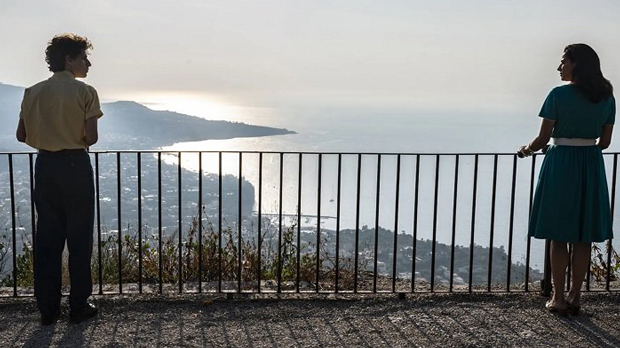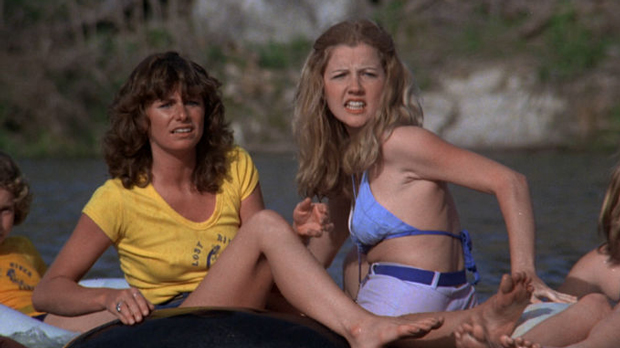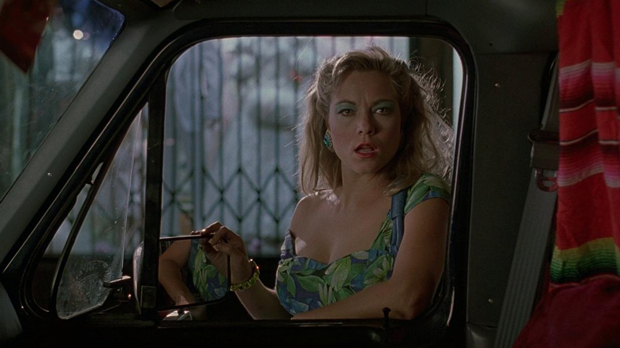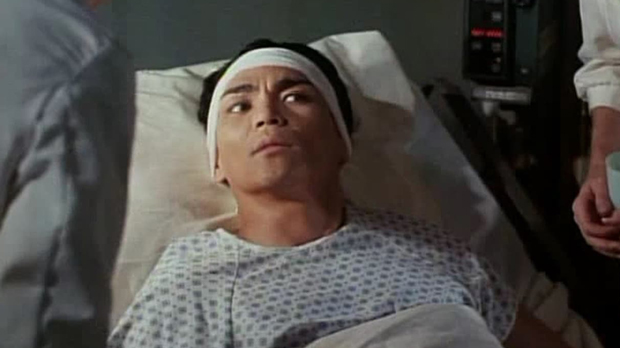 The Hand of God (2021) Netflix/Drama RT: 130 minutes Rated R (sexual content, language, some graphic nudity, brief drug use) Director: Paolo Sorrentino Screenplay: Paolo Sorrentino Music: Lele Marchitelli Cinematography: Daria D’Antonio Release date: December 15, 2021 (US, Netflix) Cast: Filippo Scotti, Toni Servillo, Teresa Saponangelo, Marlon Joubert, Luisa Ranieri, Renato Carpentieri, Massimiliano Gallo, Betti Pedrazzi, Enzo Decaro, Sofya Gershevich, Lino Musella, Biagio Manna, Ciro Capano, Monica Nappo, Franco Pinelli, Mimma Lovoi, Robert De Francesco, Carmen Pommella, Dora Romano, Viviana Cangiano, Alessandro Bressanello, Antonella Morea, Rossella Di Lucca. Spoken in Italian w/English subtitles
The Hand of God (2021) Netflix/Drama RT: 130 minutes Rated R (sexual content, language, some graphic nudity, brief drug use) Director: Paolo Sorrentino Screenplay: Paolo Sorrentino Music: Lele Marchitelli Cinematography: Daria D’Antonio Release date: December 15, 2021 (US, Netflix) Cast: Filippo Scotti, Toni Servillo, Teresa Saponangelo, Marlon Joubert, Luisa Ranieri, Renato Carpentieri, Massimiliano Gallo, Betti Pedrazzi, Enzo Decaro, Sofya Gershevich, Lino Musella, Biagio Manna, Ciro Capano, Monica Nappo, Franco Pinelli, Mimma Lovoi, Robert De Francesco, Carmen Pommella, Dora Romano, Viviana Cangiano, Alessandro Bressanello, Antonella Morea, Rossella Di Lucca. Spoken in Italian w/English subtitles
Rating: *** ½
Writer-director Paolo Sorrentino’s (The Great Beauty) wistful coming-of-age drama The Hand of God clearly shows influences of Fellini, Amacord in particular, while never losing the voice of its creator. Largely autobiographical, it’s one of this year’s Best International Feature hopefuls. It definitely deserves to be counted among the elite of 2021. Flawed but wonderful, it’s easily Sorrentino’s most accessible film.
The Hand of God is set in Naples sometime in the mid-80s. It has to be after 1984 because a VHS copy of Sergio Leone’s Once Upon a Time in America sits next to the family VCR waiting to be watched. The family in question is that of Fabietto Schisa (Scotti), an introverted 17YO who has yet to sample life outside his eccentric extended family. He’s close to his parents, philandering dad Saverio (Servillo, The Great Beauty) and prankster mom Maria (Saponangelo, I Can See It in Your Eyes). They’re a loving couple despite the illicit affair with a colleague that’s been going on for some time. Fabietto’s older brother Marchino (Joubert) is an aspiring actor while his sister Daniela is heard but not seen (she’s never NOT in the bathroom).
While Fabietto is the central figure of The Hand of God, Sorrentino toys with the audience by kicking things off in an unexpected way. It opens like a horror movie with an unhinged woman being lured to a dark apartment by a mysterious man. He promises that she will able to bear children after meeting “The Little Monk”, a legendary figure from ancient Naples folklore. It’s an unsettling moment. When she arrives home two hours late, her abusive husband doesn’t believe her story and violently attacks her. She has to call family to intervene. She turns out to be Fabietto’s aunt Patrizia (Ranieri, The Music of Silence), an attractive but disturbed woman who plays a key role in the young protagonist’s sexual growth. She’s one of several adults who help shape Fabietto into the adult and artist he will become.
For a while, Fabietto lives a life of contentment observing the ups and downs of family members. Like everybody else in town, he’s really into football. He shares their excitement for star player Diego Maradona joining their team. Then tragedy strikes, MAJOR tragedy. It causes his once-close family to start drifting apart. Suddenly, Fabietto is faced with the prospect of growing up which means looking ahead to the future rather than dwelling on the past.
The Hand of God is nearly perfect. The only problem is that it tends to meander in the third act. It feels like Sorrentino could have tightened things up a bit. Even so, it’s an excellent film. It’s one of those episodic deals that allows the audience to witness little events and meet interesting characters like the cantankerous family matriarch (Romano) who sits off to the side and hurls insults at everybody. At one point, Fabietto accompanies his brother to an audition for a Fellini film. Sitting in the waiting room with a bizarre collection of local hopefuls, it’s a scene right out of one of the Italian filmmaking maestro’s films. Later, the young man encounters the director (Antonio Capuano) who would someday become Sorrentino’s real-life mentor. He advises Fabietto against going to Rome to pursue a career in cinema. He tells him to stay right where he is and tells stories about Naples.
The acting is superb all around in The Hand of God. Scotti, in his first major role, is eerily reminiscent of Timothee Chalamet. He has this air of naturalism about him. He’s completely believable as a teen navigating his way into adulthood. It would be easy to play his obsession with his overly sexualized aunt for laughs. Sorrentino takes the high road instead depicting Fabietto’s curiosity about women in a way that’s anything but gratuitous. Imagine how the scene of him watching his aunt sunbathe in the nude would play in an American movie? It’d probably be like something out of American Pie. In any event, the young actor appears to have a bright future ahead of him. As Patrizia, Ranieri is both sexy and sad as a depressed beauty whose self-destructive instincts make the audience fear for her safety.
I’d be remiss if I didn’t mention one other performance. That would be Betti Pedrazzi as Baroness Focale, the widowed upstairs neighbor who loves to put on airs. She hasn’t let anybody into her apartment since her husband died many years earlier. She too plays a role in Fabietto’s sexual growth. Again, something that would be played for cheap laughs in an American movie is handled in a serious manner.
What’s really fascinating about The Hand of God is how it never expresses a longing for the past. Most autobiographical films come drenched in nostalgia. Sorrentino avoids that. What we have here is a revisiting of the past, a look back at a portrait of the artist as a young man. Everything that happened to Fabietto in his formative years helped shape the man and filmmaker. It really is quite a film. It may not rise completely to the level of masterpiece, but it’s still a brilliant work of art.




